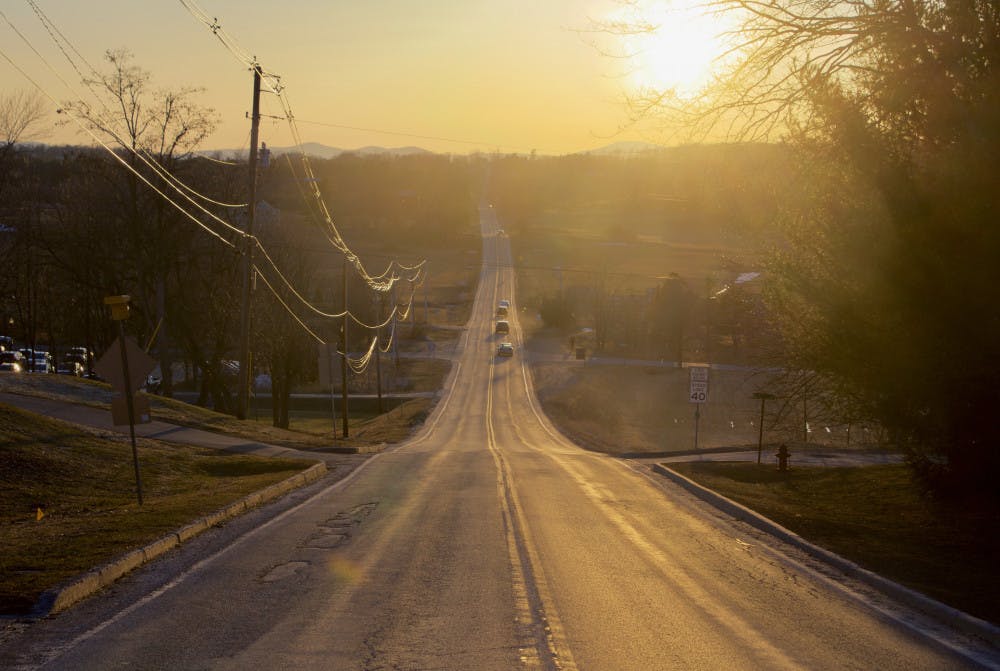The college has approved a small number of students to cross state lines to get their Covid-19 shot as eligibility criteria — such as having certain pre-existing health conditions — in some students’ home states qualify them to receive the vaccine.
Vermont’s rigid age-based rollout process has barred students who would otherwise be eligible for vaccines in other states to receive it in Vermont. Students and administrators alike also learned on Tuesday that out-of-state college students are not eligible to receive the vaccine in Vermont, which may result in an influx of student requests to leave the state for inoculation.
While the official rules regarding travel for the spring semester restrict students from traveling outside of Addison Country, students may receive approval from Dean of Students Derek Doucet to travel to vaccination sites outside of Vermont.
“We made the decision to treat requests to leave campus for vaccinations as we would other essential medical appointments,” Doucet said.
There is no specific travel radius written in the rules, but appointments must be within reasonable driving distance for a day trip, according to Doucet. Any travel that would involve an overnight stay requires additional consideration and approval from the college, and the returning student would have to observe a seven-day room quarantine followed by a negative test.
Matt Brockley ’23 made an appointment in his home state of New York shortly after arriving on campus — before Vermont had expanded vaccine eligibility to include those in his age group with certain chronic health conditions. He received his first dose in Plattsburgh on March 27. Brockley emailed the Dean of Students explaining his eligibility and was approved under the condition that he did not make any stops and traveled alone.
Along with pre-existing conditions, some students have been vaccinated in states where they will be employed for the summer. This June, Willie Thacker ’23 will be working at a summer camp in New Hampshire, a state that included camp counselors as essential workers. Thacker received a letter of hire from his boss attesting his employment, which he then showed to both the college and the vaccination site in West Lebanon. But Thacker initially weighed whether off-campus travel was worth it if there was a possibility he could be vaccinated through the college.
“I feel safe on campus, but I also feel that I’m more likely to get Covid at Middlebury than any other place I’ve been,” Thacker said. “If I knew for sure that the college was going to vaccinate us before we left, I probably would have waited for that.”
Thacker did not know the college was granting out-of-state travel for vaccinations until another student mentioned it to him.
Other students have had more difficulty scheduling vaccination appointments, especially those whose home states are not a short day-trip away. Erin Hogan ’21.5, who has type 1 diabetes, was eligible in her home state of New Jersey before leaving for the spring semester. However, she could not make an appointment without violating the two-week pre-arrival quarantine that all in-person learners were asked to complete before returning to Middlebury this spring.
Hogan appreciates what the college has done in regards to constant testing and feels safe on campus, but thinks the college could have had better communication about vaccinations.
“I wish the college had made the [vaccination] information more widely available. It kind of puts a burden on high-risk students to figure out this weird system by themselves which is frustrating,” Hogan said.
Elizabeth Callaway ’21 is eligible in her home state of Tennessee due to asthma, a condition that Vermont does not include in the high-risk category for vaccination. Callaway also expressed frustration over the college’s lack of communication.
“I would have really loved some assistance from Middlebury in figuring out where everyone places in the Vermont phases. At home I have a better sense for how to navigate it, but in Vermont, Middlebury really is our only contact,” Callaway said.
The college has not yet changed any of its safety guidelines for vaccinated students.
President Patton, Doucet and Dr. Mark Peluso stated in an email last Thursday that students who meet requirements in Vermont can register using the college address to demonstrate residency. However, Gov. Phil Scott announced on Tuesday that out-of-state college students are ineligible, contradicting the college’s guidance.
Doucet and Peluso reaffirmed that students may seek approval to get vaccinated in their home state in an email update on Wednesday that also told students not to cancel existing in-state appointments.

Roya Touran '23.5 is a news editor.




